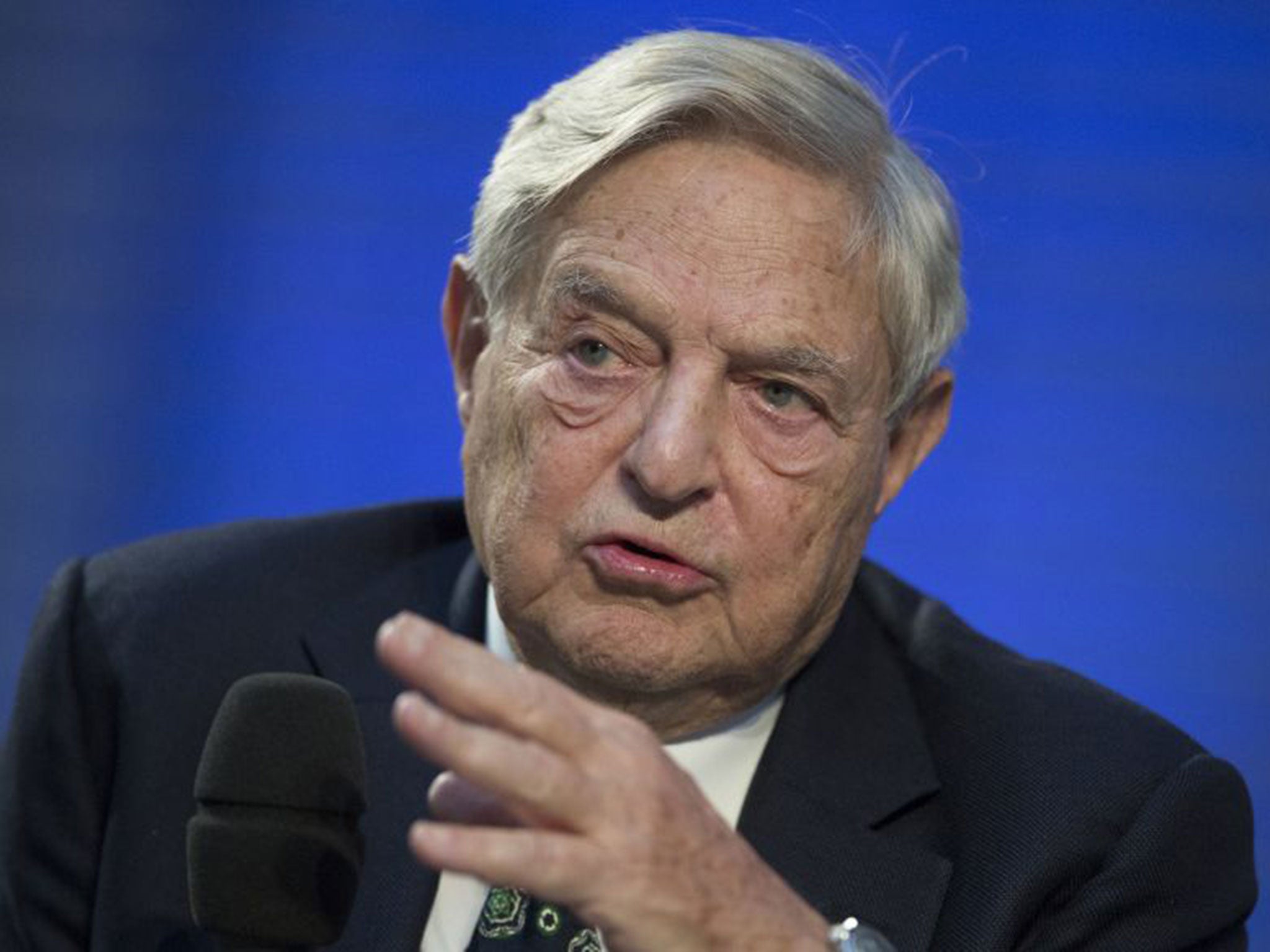George Soros accuses Hungarian Government of 'outright lies' in attack against him
US financier says his views on migrants and refugees were distorted by Hungarian Prime Minister Viktor Orban

Your support helps us to tell the story
From reproductive rights to climate change to Big Tech, The Independent is on the ground when the story is developing. Whether it's investigating the financials of Elon Musk's pro-Trump PAC or producing our latest documentary, 'The A Word', which shines a light on the American women fighting for reproductive rights, we know how important it is to parse out the facts from the messaging.
At such a critical moment in US history, we need reporters on the ground. Your donation allows us to keep sending journalists to speak to both sides of the story.
The Independent is trusted by Americans across the entire political spectrum. And unlike many other quality news outlets, we choose not to lock Americans out of our reporting and analysis with paywalls. We believe quality journalism should be available to everyone, paid for by those who can afford it.
Your support makes all the difference.US financier George Soros on Monday denounced a Hungarian government campaign against him as “distortions and lies” designed to create a false external enemy.
Mr Soros, 86, is a Hungarian-born Jew whose long-time support for liberal and open-border values in eastern Europe have put him at odds with right-wing nationalists, in particular the government of Hungarian Prime Minister Viktor Orban.
Mr Orban, who faces elections in April 2018, last month sent to voters seven statements attributed to Soros that, among other things, called for the European Union to settle a million migrants a year and pay each of them thousands of euros.
“The statements... contain distortions and outright lies that deliberately mislead Hungarians about George Soros’s views on migrants and refugees,” said a statement issued by Soros’s Open Society Foundations.
“With Hungary’s health care and education systems in distress and corruption rife, the current government has sought to create an outside enemy to distract citizens. The government selected George Soros for this purpose,” it said.
It said each of the seven statements was a distortion or lie, refuting them one by one. It said Soros proposed admitting an annual 300,000 refugees to the EU only while strengthening European border controls and making migrant relocations within the bloc voluntary, not mandatory as Budapest asserted.
It said Mr Soros proposed no payments to migrants, rather EU subsidies to member states to help them cope with migration.
To three other proposals attributed to Mr Soros - that he wanted milder criminal sentences for migrants, to push national cultures and languages into the background to facilitate easier integration of migrants and sanctions against countries that oppose migration, the Open Society statement said, “Nowhere has Soros made any such statement(s). This is a lie.”
A Hungarian government spokesman was not immediately available for comment on the Open Society statement.
Mr Orban once received a Soros grant to study at Oxford University but later turned against the billionaire philanthropist, vilifying him as an alleged mastermind of a global agenda to weaken nation states.
The election campaign of Mr Orban’s Fidesz party has built on a series of billboards warning Hungarians, “Don’t let Soros have the last laugh” and showing a laughing Soros in black and white. Some of the billboards have had “stinking Jew” scrawled on them.
The billboards, along with calls from Mr Orban to preserve Hungary’s “ethnic homogeneity” and his endorsement of a World Two Hungarian leader who allied with Nazi Germany, drew accusations of anti-Semitism earlier this year.
Alluding to the billboards and to Mr Orban’s rejection of immigration, especially from Muslim nations, the Open Society Foundations accused Budapest of “stoking anti-Muslim sentiment and employing anti-Semitic tropes reminiscent of the 1930s”.
Fidesz pulled the billboard campaign just before a July visit to Budapest by Israeli Prime Minister Benjamin Netanyahu, and Mr Orban vowed to fight anti-Semitism.
The government has denied its campaign was anti-Semitic, and re-launched the billboards in the autumn in promoting a “national consultation” with voters.
Reuters
Join our commenting forum
Join thought-provoking conversations, follow other Independent readers and see their replies
Comments